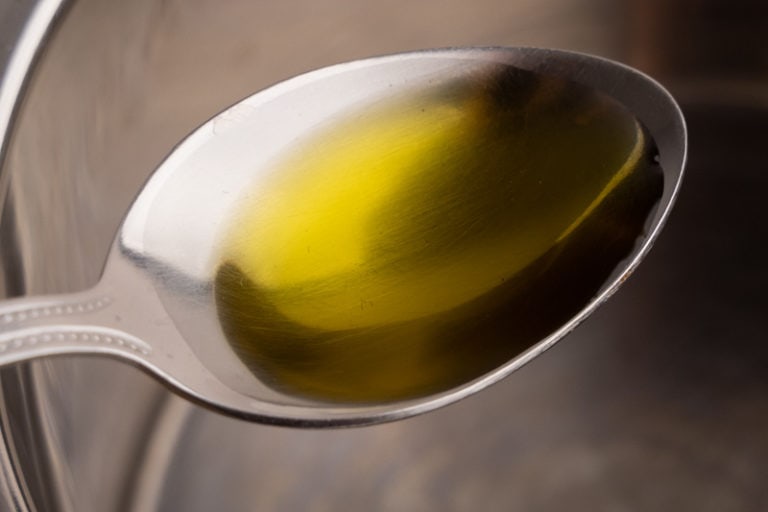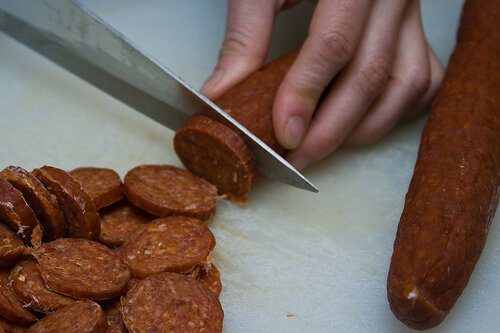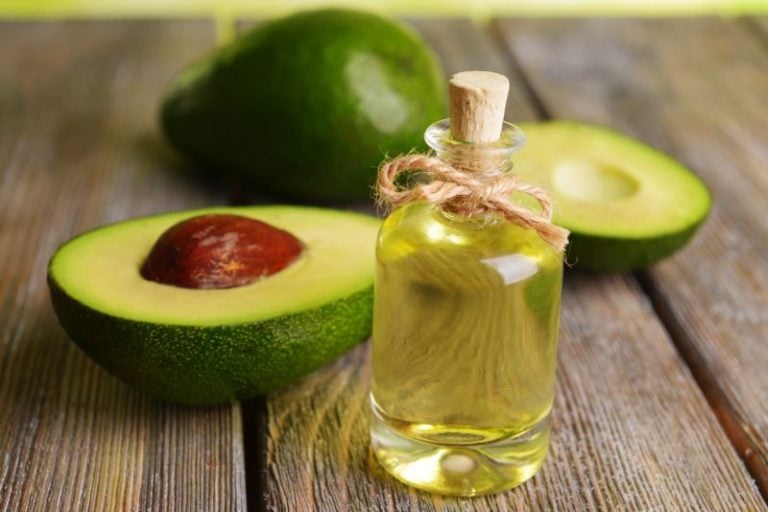Do Sesame Seeds Go Bad?
Here’s all you need to know about the spoilage, shelf life, and storage of sesame seeds. Learn if sesame seeds ever go bad, how long they last, and what’s the best way to store them.
Found a half-open bag of sesame seeds that are a couple of months past the printed date and not sure if you can still eat them? Do sesame seeds go bad?
Or maybe you’ve just opened a bag and you’re wondering what’s the best way to store the seeds or how long sesame seeds last.
Sounds familiar? If so, this article is for you.
Let’s dive in.
Sesame seeds are usually available in two varieties: light (including white and similar) and dark (including black and similar). Both have a similar shelf life, storage needs, and signs of spoilage. The only differences are color and a slightly different flavor.
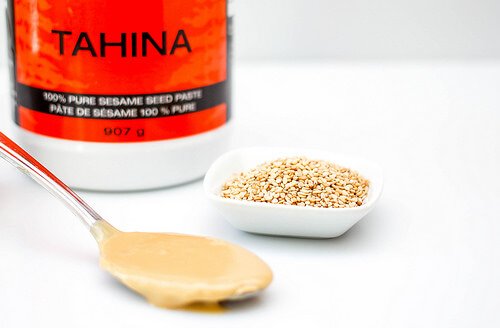
Do Sesame Seeds Go Bad?
Sesame seeds don’t retain quality indefinitely. Stored long enough or in bad conditions, they will go rancid, and that’s when you toss them.
The easiest way to tell your sesame seeds are rancid is by tasting them. If you notice the seeds taste bitter instead of slightly nutty and somewhat sweet, that’s a sure sign they’re rancid.
Sometimes, rancid seeds also give off a chemical odor that might remind you of old paint or nail polish remover. Or simply smell sour. But that change isn’t always that pronounced, and you might not notice anything odd after giving the seeds a good sniff.
The same is true for other seeds, so if you want to know whether chia seeds go bad or if flaxseed spoils, you now know the answers.
As you might imagine, going rancid isn’t the only way sesame seeds spoil or become unsafe to eat. There are a couple of others, too.
How to Tell If Sesame Seeds Are Bad?
Discard sesame seeds if:
- The seeds are rancid. If the seeds’ smell or flavor is off, they’re most likely rancid, and you should toss them. As you might imagine, sesame seed oil can go rancid, too.
- You find unwanted visitors in the bag. If you have a problem with pantry pests, they might find their way into the seeds, especially if the bag or container isn’t sealed tight. If you notice any pantry bugs, eggs, or larvae, assume the seeds are spoiled.
- They’re moldy. Mold isn’t common in seeds, but if moisture gets inside the bag, anything is possible. So if you notice any white fuzz growing on the seeds, they’re gone.
So when checking your sesame seeds, you start by giving the bag a good visual check, looking for mold and any bugs.
Next, if there’s nothing suspicious going on, you give the seeds a good whiff to check if they don’t smell sour or chemical-like.
Last, you eat a few seeds to check if they aren’t rancid.
Now, what if your sesame seeds seem okay but taste pretty stale? The obvious solution is to toast the seeds to enhance their flavor.
Can You Eat Expired Sesame Seeds?
You can eat and use “expired” sesame seeds if they don’t show any spoilage signs such as rancidity, mold, pantry bugs, or anything else that seems off. That also means you should discard rancid sesame seeds.
Eating rancid products typically has no immediate adverse effects, meaning you won’t get sick after eating rancid sesame seeds or rancid tahini, especially if we’re talking about small amounts. The worst that might happen is some minor digestive issues a couple of hours later.
But if we look at the bigger picture, we learn that consuming rancid fats may have a detrimental effect on our long-term health. We don’t know for sure at the moment, but better safe than sorry.
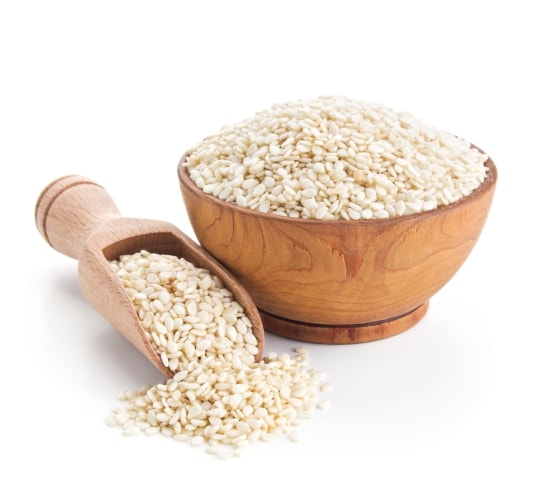
How Long Do Sesame Seeds Last?
| Pantry | Fridge | |
|---|---|---|
| Sesame seeds (unopened) | Best-by + 3+ months | |
| Sesame seeds (opened) | Best-by + 3+ months | Best-by + 1 year |
| Toasted sesame seeds | 3 months | 6 months |
Sesame seeds stored at room temperature typically last for a couple of months past the printed date. Once you open the bag, the seeds should still retain quality past the best-by date, assuming that you keep them sealed tightly and in a reasonably cool spot.
A typical bag of sesame seeds comes with a shelf life of about a year from the packaging date. That means you’re getting about 15 to 18 months of good quality at ambient temperature.
If that’s not enough, you can always refrigerate the seeds for a few extra months or even freeze them if you have no idea when you’ll use them.
(I cover the specifics in the storage section.)
Of course, these periods that I outlined are only rough estimates. And your sesame seeds might go rancid sooner if the storage conditions are sub-par. Or last a couple of months longer if you’re doing a good job regarding storage.
Toasted Sesame Seeds
Toasted sesame seeds last about 3 months at room temperature and around 6 months in the fridge. So if you’re toasting a big batch that you hope will be enough for the next couple of months, refrigerating it is probably best.
Storage time for toasted seeds is shorter because that process changes the internal structure of fat in them, making them more prone to go rancid. Plain sesame oil lasts longer than toasted sesame oil for the same reasons.
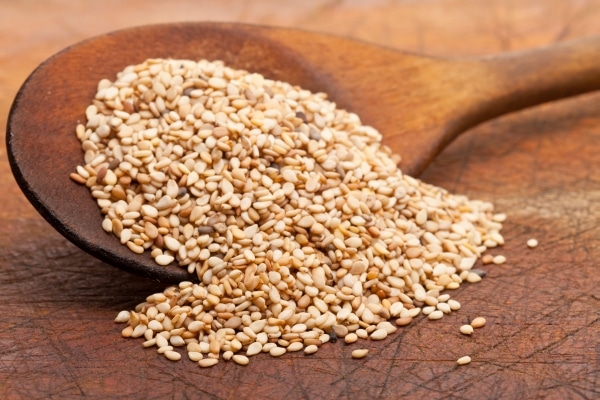
How to Store Sesame Seeds
Store sesame seeds in a cool and dry place, away from sunlight. The pantry or a dark cabinet in the kitchen both work great. After opening the bag, keep the seeds sealed tight to protect them from pantry bugs and moisture.
If your bag isn’t resealable, it’s best to transfer the seeds into an airtight container or a freezer bag. Or, at the very least, keep the top wrapped or sealed using a plastic clip.
When it comes to temperature, the seeds typically keep quality up to a few months past the printed date if at room temperature.
Refrigeration is also an option, of course.
The main reason to place your sesame seeds in the fridge is to prolong their shelf life by a couple of months. Another is to keep them from going rancid too soon if your kitchen or pantry gets very hot (like 86°F or 30°C) during the day in the summer. Or if you toasted the seeds.
If you decide to refrigerate sesame seeds, seal the package tightly so the seeds don’t absorb moisture or smell from the environment.
(The same is true when storing sunflower seeds, pumpkin seeds, and others.)
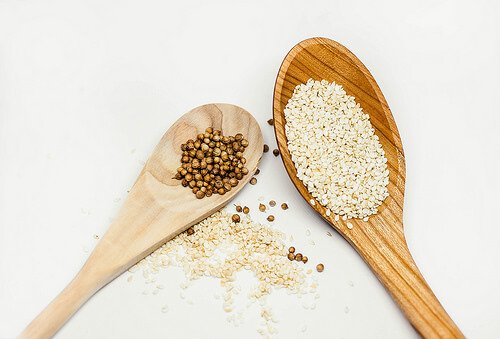
When it comes to freezing, sesame seeds freeze just fine.
Freezing is a good option if you need to store the seeds way past the best-by date or don’t have enough space in the fridge. Just ensure you protect them from the cold environment by sealing them in a freezer bag or resealable container.
You can use seeds right away from the freezer without thawing them first.
Rotten Records: Share Your Snap!
Caught some food past its prime? Upload your photo to “Rotten Records” and help others spot the signs of spoilage. Every image makes our food community safer and more informed!
